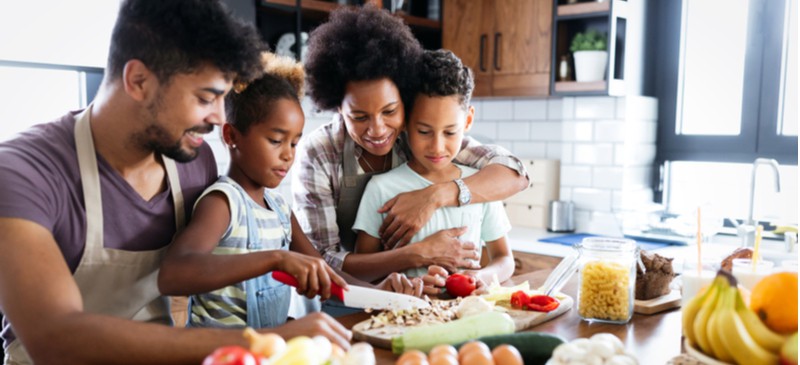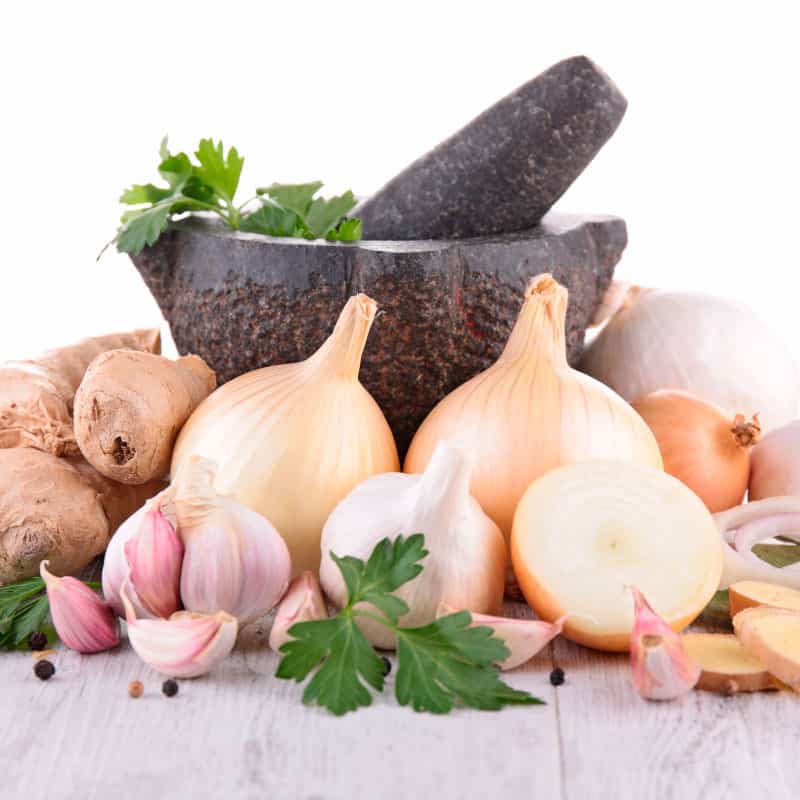This Dr. Axe content is medically reviewed or fact checked to ensure factually accurate information.
With strict editorial sourcing guidelines, we only link to academic research institutions, reputable media sites and, when research is available, medically peer-reviewed studies. Note that the numbers in parentheses (1, 2, etc.) are clickable links to these studies.
The information in our articles is NOT intended to replace a one-on-one relationship with a qualified health care professional and is not intended as medical advice.
This article is based on scientific evidence, written by experts and fact checked by our trained editorial staff. Note that the numbers in parentheses (1, 2, etc.) are clickable links to medically peer-reviewed studies.
Our team includes licensed nutritionists and dietitians, certified health education specialists, as well as certified strength and conditioning specialists, personal trainers and corrective exercise specialists. Our team aims to be not only thorough with its research, but also objective and unbiased.
The information in our articles is NOT intended to replace a one-on-one relationship with a qualified health care professional and is not intended as medical advice.
Cooking Therapy Benefits for Stress + Mental Health
July 6, 2020

You probably already know that cooking the majority of your meals at home, rather than relying on takeout and restaurants, offers a number of health advantages, including keeping your calorie intake in check and saving you money. That’s not all, however, as cooking therapy — how does cooking make you feel? — is also beneficial for mental health.
Cooking therapy, also referred to as culinary therapy or kitchen therapy, is one way to simultaneously “nourish your mind and feed your soul,” as described by a Psychology Today article.
What are some of the best things about cooking therapy as a form of self-care? Not only can it help relieve anxiety, but it’s also accessible to just about everybody, actually saves you money (unlike most hobbies!), and produces a finished product that can be shared or just enjoyed on your own.
Ready to get cooking? Find out more below about how cooking and baking can support both your physical and mental health in a number of unique ways.
What Is Cooking Therapy?
Cooking therapy/culinary therapy has been defined by some experts as “the therapeutic technique that uses arts, cooking, gastronomy, and an individual’s personal, cultural, and familial relationship with food to address emotional and psychological problems.”
Preparing food is activity is one that you can do at home, and that can be incorporated into treatment plans at mental health clinics and therapist offices.
Cooking and baking as a form of a stress relief is now recommended for people dealing with a wide range of health conditions, including depression, anxiety, chronic stress, eating disorders, ADHD and addiction.
How can cooking relieve stress? According to a 2018 review, some of the many ways in which cooking (and baking therapy too) can help to reduce anxiety symptoms and perk up your mood include by giving you a sense of control, accomplishment and providing (for yourself and for whomever else you cook), while having a positive influence on socialization, self-esteem and overall quality of life.
Cooking and Mental Health
Why is cooking good for mental health? According to recent research focused on culinary therapy, here are some of the ways that cooking therapy can improve your mood and general well-being:
- Requires concentration, so can act a healthy distraction that allows you to slow down and “get out of your head.”
- Can serve as a form of mindfulness. As one author put it, “Cooking is meditation with the promise of a good meal afterward.”
- Awakens your senses, requiring you to pay attention to the present moment.
- Can help you get into a “flow state,” since it’s both challenging and enjoyable at the same time.
- Encourages you to learn new skills and expand your knowledge base.
- Provides an “escape” and breaks up the monotony of your daily routine, since there are always new recipes to try.
- Can improve quality of life among people coping with addictions and serious illnesses, such as cancer.
- May help you feel less anxious, depressed or overwhelmed, since cooking gives you a feeling of accomplishment and can also provide pleasure. Additionally, it’s a way to practice gratitude for the food available to you and can give you a boost in self-esteem if you take the time to appreciate and enjoy what you’ve made.
Is cooking creative? Definitely, which is why some researchers also refer to cooking as “culinary art.”
Both baking and cooking give you outlets to express yourself and produce something tangible of substance. It’s an added bonus that you can eat and share your work of art!
Other Benefits of Cooking
What are other advantages of cooking? If you need a nudge to spend more time in your kitchen, here are some other benefits of cooking:
- Physical benefits of cooking — Compared to sedentary hobbies like reading, watching TV or working on the computer, cooking and baking require you to be up on your feet, fetching ingredients, mixing, chopping and cleaning up afterward. It might not be an intense workout, but a cooking session is one way to do something that’s both fun and relatively active at the same time. It’s even been shown to decrease the risk of disability, loss of independence and malnutrition among elderly adults, since it requires multiple physical and mental skills to be utilized simultaneously.
- Benefits of cooking together as a family/couple — You might normally think of meal planning, cooking and cleaning up the mess as a hassle, but research suggests that exploring recipes together with your family/partner, planning and then cooking the meals as a team can actually be a fun way to gather, bond and enjoy time together.
- Saving money — If you typically rely on takeout and convenience foods, cooking more meals at home is a great way to eat healthy on a budget and start saving money. Cooking with seasonal, local produce is another money-saving solution, since not only are the ingredients fresh and taste great, but they may be cheaper too. Another way to keep costs down is to take inventory of ingredients you already have and then come up with creative new ways to use them.
- Eating healthier — Many studies have found that when people cook for themselves at home they tend to consume less calories overall and eat better-quality foods. If you take the time to carefully prepare a meal, you’re also less likely to zone out while eating and more inclined to to practice mindful eating, take your time and pay attention to your hunger and fullness cues.
- Supporting overall cognitive health — Studies have shown that when adults focus on eating simple, anti-inflammatory foods like greens, berries, nuts, seeds and fish, they tend to experience benefits related to their general well-being, including:
- Reduced oxidative stress/free radical damage
- Lower inflammation
- Protection against dementia, cognitive decline and Alzheimer’s disease, heart disease, weight gain, and metabolic syndrome
- Improved blood sugar
- Lowered risk for obesity
- Improved mobility and quality of life
Healthy Recipes for the Mind
One way to take the benefits of kitchen therapy to the next level is by preparing healthy, nourishing recipes that you can feel good about eating and sharing. Nutrient-dense foods are also supportive of cognitive/mental health and can even lower your risk for issues like depression and dementia.
What types of foods should you focus on in order to take care of your mind? Those that are emphasized on the MIND diet, a healthy eating plan that has the goal of lowering your risk for cognitive disorders, include:
- Vegetables, especially leafy greens like spinach, kale, etc.
- All other fresh vegetables are also included, such as cruciferous veggies like broccoli, Brussels sprouts, peppers, tomatoes, carrots, mushrooms, green beans, etc.
- Fresh fruit, especially all types of berries, including strawberries, blueberries, raspberries, blackberries, cherries, cranberries, etc.
- Nuts and seeds, such as walnuts, almonds, chia seeds and flaxseeds
- Beans and legumes, such as chickpeas, black beans, lentils, etc.
- Whole grains, such as oatmeal, quinoa, brown rice, barley, farro, 100 percent whole-wheat breads, etc.
- Fish, particularly wild-caught, fatty fish like like salmon, sardines, halibut, trout, tuna and mackerel, which are the best sources of omega-3 fats
- Lean meats like poultry, ideally that are pasture-raised and not breaded or fried
- Olive oil, which is used as the “main cooking oil” and can also be drizzled over salad, veggies, etc.
Need some more inspiration? If learning about new ingredients and exploring novel recipes make cooking more fun for you, try stocking your kitchen with some of these interesting, healthy ingredients:
- Bone broth (numerous ways to use this, including in soups, stews, marinades, omelets and even baked goods)
- Beetroot powder (great in smoothies, sauces, salad dressings and gravy)
- Cassava, tiger nut, banana and chickpea flours (try these gluten-free flours in baked goods, flat breads and more)
- Freekeh (an ancient grain that can sub in for buckwheat, quinoa or farro)
- Kombu (a type of seaweed used in soups, stews and salads)
- Natto (similar to miso, used in mostly Japanese dishes)
- Medicinal mushrooms (can be used to brew tea or make broths)
Risks and Side Effects
Are there any downsides to partaking in culinary therapy? Not really, as long as you don’t take it too seriously and put pressure on yourself.
View it as a fun and creative activity, rather another chore or complicated task. Try easy recipes that you naturally feel drawn to, and don’t be hard on yourself if you improvise a recipe and wind up messing things up.
Conclusion
- Cooking therapy, also called culinary or kitchen therapy, is a therapeutic technique that uses the art of cooking (or baking or gastronomy) to address emotional and psychological problems and improve mental health.
- What are the mental health benefits of cooking at home? Cooking can be relaxing, serves as a way of practicing mindfulness, improves concentration, can get you into a “flow state,” is a creative outlet and more.
- Other benefits of cooking include fostering connection with others, eating healthier overall, saving money, and supporting cognitive health in ways such as lowering inflammation and oxidative stress.
- A high-quality diet plays a major role in keeping your brain healthy. Therefore to get the most from cooking therapy, emphasize whole foods like greens, berries, nuts, seeds, whole grains and fish.










